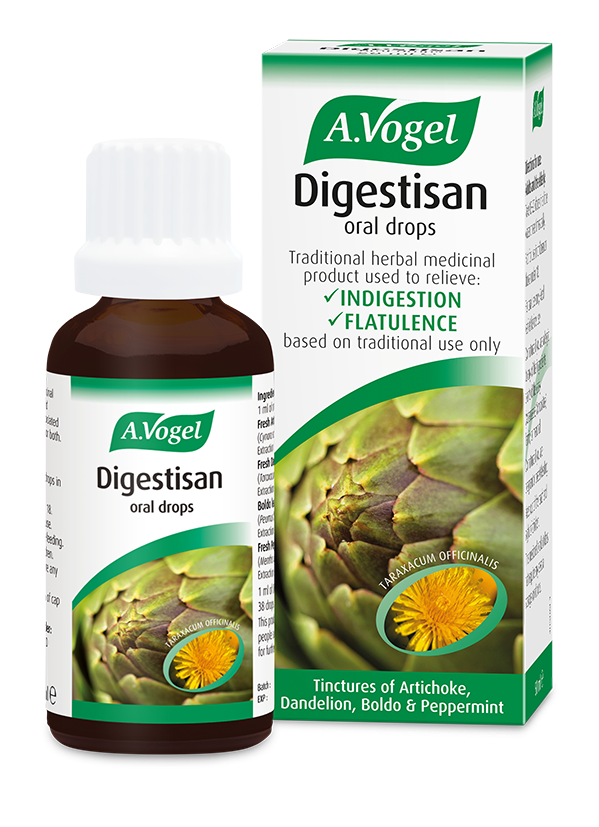An introduction to indigestion symptoms
Indigestion symptoms are very common. Most of us will have experienced symptoms of ‘normal indigestion’ – these are mild, transient, and usually caused by overindulgence and greed.
However, up to 40% of people suffer from more severe or prolonged indigestion symptoms, making indigestion one of the more common health problems encountered.
Bloating
This is one of the most common symptoms encountered. Bloating occurs when gas builds up in the stomach causing the organ to expand just as a balloon does. The extra pressure makes you feel full quickly even if you haven’t eaten much.
This symptom may arise because food is poorly digested and ‘ferments’ in the stomach. Gas produced will, in turn, affect the way the stomach works, worsening the symptoms present.
Other causes of bloating include swallowing air when eating – this is made worse by gulping down food or eating on the run. Food intolerances can also give rise to bloating, especially further down the digestive tract.
The body gets rid of gases present in the digestive system either by passing it upwards as a burp, or downwards through the back passage as flatulence.
Rumbling Stomach
A rumbling stomach is also called ‘borborygmus’, a descriptive word onomatopoeically coined (created by imitating the sound of a rumbling stomach) by the ancient Greeks.
This symptom is normal and caused by the contraction of the muscles in the stomach. Generally when the stomach is filled with food, this sound is dampened, but if the stomach is empty, the sound becomes audible. This is why your stomach rumbles more when you are hungry.
Borborygmus is worsened when bloating is present as the excess gas amplifies the sounds.
Burping and Flatulence
Burping and flatulence are normal reflexes of the digestive system.
However, indigestion can result in the production of excessive wind, making these symptoms worse. Your body needs to get rid of excess gas that builds up when you eat, to reduce the internal pressure in the digestive organs.
Acid reflux and heartburn
Acid reflux occurs when the acidic contents in your stomach travel backwards, up the oesophagus or gullet towards your mouth. It is sometimes also referred to simply as reflux.
Acid irritates the gullet, causing inflammation to the delicate tissues lining this organ. This in turn gives rise to symptoms such as burning, aching or pain behind the breast bone. The pain can be severe enough to be mistaken for heart pain (angina or a heart attack). This is the reason that acid reflux is also known as heartburn.
In severe cases, the acidic contents from the stomach can travel all the way up to the mouth, leaving an unpleasant acidic taste in the mouth. This is more prone to occur when one is lying down horizontally (in bed) or when bending down.
Nausea and Vomiting
Nausea is the feeling of an urge to vomit. Vomiting is when your stomach forcefully ejects its contents through the mouth.
Nausea is a common symptom of indigestion and can be caused by a number of factors:
- Acid reflux (heartburn) - the taste of acid in your mouth can make you feel nauseous
- Any irritation in the stomach can cause nausea
Of course, nausea can occur without any problems being present in the digestive system. For example, it is a symptom which is experienced during travel sickness.
Stomach (tummy) pain
Indigestion can give rise to pain in the epigastric area – the part of the stomach or tummy just under the ribs (include diagram). This type of pain is experienced as a dull burning sensation and is often linked to other symptoms of indigestion such as acid reflux, heartburn or nausea.
If pain is severe, or if you have severe vomiting, particularly if blood is present, you must seek medical attention immediately.
Loss of appetite
A symptom of indigestion may be loss of appetite or a feeling of being full quickly when you eat. This can happen because eating worsens symptoms of indigestion, as when you eat, the stomach produces acid. In addition, bloating, nausea or pain will do nothing to encourage you to eat.









